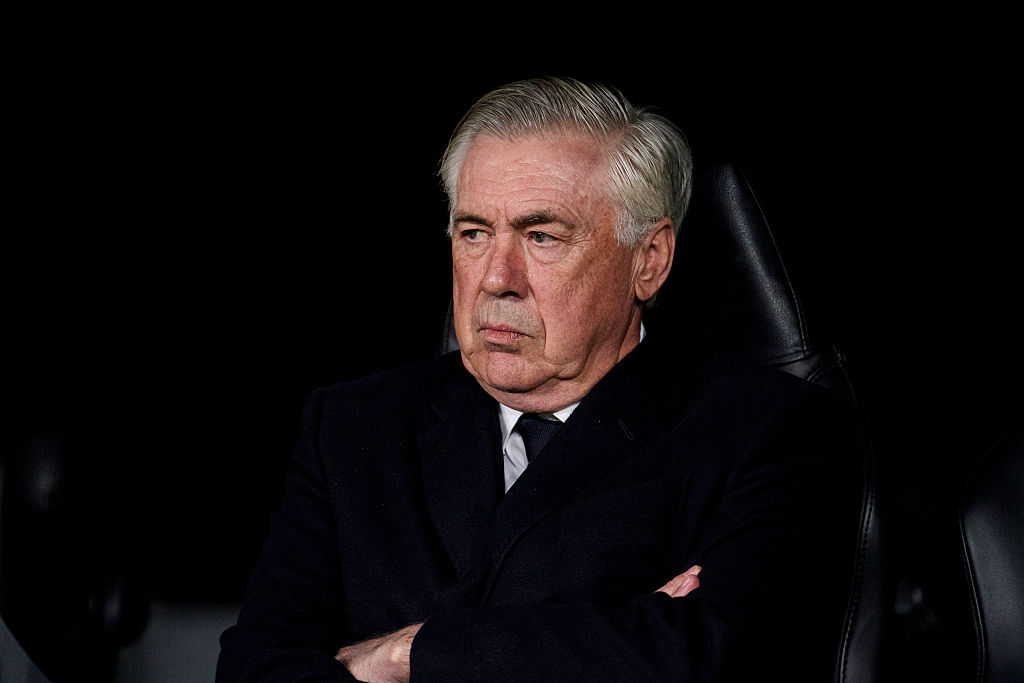Who is Jorge Mendes? The super-agent making football moves happen
He pulls the strings in the transfer market, determining the fortunes of the world’s top players and clubs. But just who is Jorge Mendes?
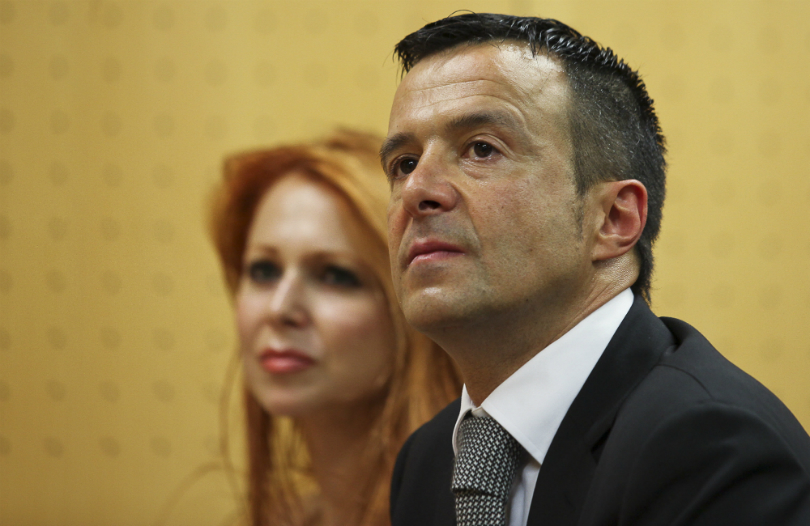
It was one of the best days of Cristiano Ronaldo’s young life. He was 18 years old and about to sign a contract with Manchester United. It would turn out to be the first major step on his road to becoming the best player in the world, and the man who had helped to get the deal over the line was Jorge Mendes, his agent.
Mendes was also excited. “You’re going to sign the deal and then we’re going to have some champagne,” he said. But there was no champagne. The paperwork was signed and not long afterwards, Mendes was back on his phone, looking to do other deals. He returned to Ronaldo’s hotel later in the evening, but the time to celebrate had passed.
There is no malice as Ronaldo tells the story – more amusement. The clear inference is that this is Jorge; this is what he’s like. Ronaldo is Mendes’ biggest fan, and sees him as part of his family: a big brother and father figure rolled into one. Indeed, he has said of his agent: “A good man… a true friend… an awesome human being.”
Deportivo La Coruna president Augusto Cesar Lendoiro has said he wasn’t sure if Mendes was a man attached to a phone or a phone that came along with a human being
The phone motif is a recurring one with Mendes. In the days when Jose Mourinho was Real Madrid coach, and Ronaldo the star player (along with fellow Mendes clients Pepe, Ricardo Carvalho, Angel Di Maria and Fabio Coentrao), the agent apparently phoned club president Florentino Perez up to 25 times a day – and that’s according to Perez himself. “Always about different matters,” he laughed.
Deportivo La Coruna president Augusto Cesar Lendoiro has said he wasn’t sure if Mendes was a man attached to a phone or a phone that came along with a human being. And Mendes once phoned Peter Kenyon at two in the morning to tell him he would be phoning back at three. “Why didn’t he just ring me at three, then?” wondered the former Manchester United and Chelsea chief executive.
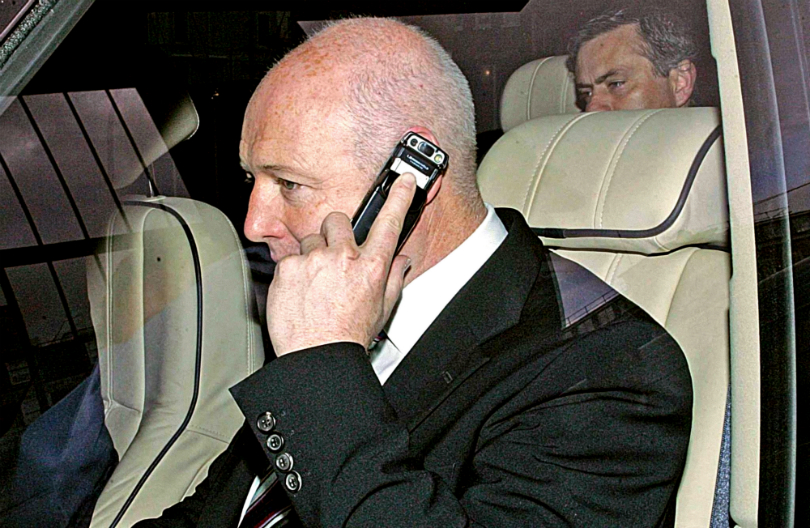
At the last count, Mendes had four mobiles on the go, and Ronaldo has estimated that he spends 20 hours per day using at least one of them. That’s how he helps to maintain the world’s most valuable player agency, Gestifute, with a combined portfolio worth more than £700m. It’s how he is able to have the ear of so many elite club presidents. And it’s how he has become not only the king of the transfer market, but one of the most powerful men in football today.
Early days
Get FourFourTwo Newsletter
The best features, fun and footballing quizzes, straight to your inbox every week.
One of his friends had a stall nearby and made around 500 escudos per day – enough to for lunch, a train ticket home and a snack for the journey. Mendes was making 10 times that amount
Jorge Mendes was born in Lisbon in January 1966, and he lived on a housing development for employees of Petrogal, where his father worked. His mother stayed at home and weaved hats and baskets out of straw. At weekends, Mendes took the number 28 bus to Fonte da Telha beach where he sold them.
He also sold old clothes at flea markets. One of his friends had a stall nearby and made around 500 escudos per day – just enough to buy food for lunch, a train ticket home and a snack for the journey. Mendes was making 10 times that amount.
Mendes played football on the local Petrogal pitch 50 metres from his apartment, and when that was busy, he joined his friends for a three-on-three game in the cobbled street square, using benches as goals. In the summer, he worked in a Cornetto factory and his job was to hold the cone at the end of the process, to ensure the ice cream did not fall on the floor. He joked to his friends that he had the most important job of all.
Back then, no one called him Jorge. His nickname was Cabanas. That’s what everyone called him, and that’s how he introduced himself to his old neighbours when he returned to the Petrogal estate as part of a 2012 documentary on Portuguese channel SIC called Jorge Mendes: The Super Agent.
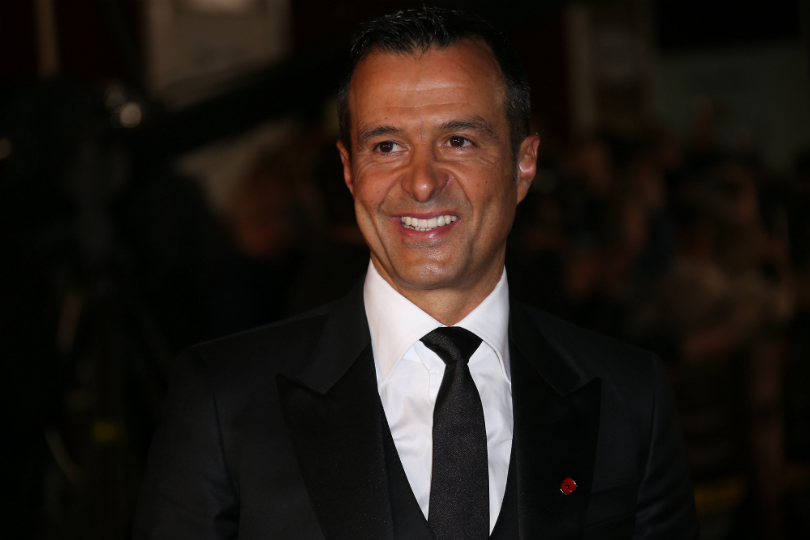
In one of the film’s more excruciating scenes, Mendes looks through old newspaper cuttings in his parents’ old home, and pops in on some neighbours who seem to have no idea who he is. “I’m Cabanas,” he says. “Ah, Cabanas,” they reply, looking blank.
We then see a dinner which Mendes hosts in a local restaurant: a bunch of fortysomethings laughing about the old days, perhaps looking at the guy in the smart suit and wondering how he made the big time and they didn’t.
But with Mendes – and perhaps this is true of anyone as successful as he is, especially in the industry he is in – there always seems to be another side to the story. Yes, that reunion did look staged, but one neighbour seemed upset about the whole thing, telling So Foot magazine: “On that day, he was on his phone more often than he was with us. He did not remember half the people he met on camera.”
Leaving Lisbon
He left Lisbon when he was 20, after a tragedy hit his family. His brother’s wife died and Mendes moved to Viana do Castelo to be near his sibling and nephew. He was playing for a lower-league side, Vianense, when in 1989 he opened a video store called Samui Video in a deserted shopping mall. No one gave him a chance of succeeding, but he had spotted an opportunity.
“I knew it was a ghost mall, but it had one thing I needed: there was plenty of parking space,” he told SIC. “I earned much more with the video store than playing for any team. It might have been the idea that changed everything for me.”
The emotion he puts into things, the way he transmits them, it makes it very difficult to say ‘no’ to something he proposes
He graduated to nightclubs and it was at Luz do Mar, a club he ran that was close to the Spanish border, where he met professional players from Braga, Porto and Vitoria Guimaraes.
He was still playing football on the side: when he was invited to turn out for Lanheses, he agreed on the condition that he managed the advertising at the stadium. Club president Rogerio Goncalves could not believe his luck: the club was getting extra revenue from Mendes, who was naturally taking a percentage as commission.
It was at the nightclub that, in 1995, he met Nuno Espirito Santo, then a goalkeeper at Guimaraes but with dreams of playing for Porto and then moving to La Liga. Mendes had dreams of his own. He wanted to get Nuno signed by Deportivo La Coruna, so he drove the 300 kilometres from Viana do Castelo and waited every day to speak to club president Lendoiro. He had no idea what he was going to say, but Lendoiro eventually agreed to see him, and he signed Nuno. “The emotion he puts into things, the way he transmits them, it makes it very difficult to say ‘no’ to something he proposes,” Lendoiro said.
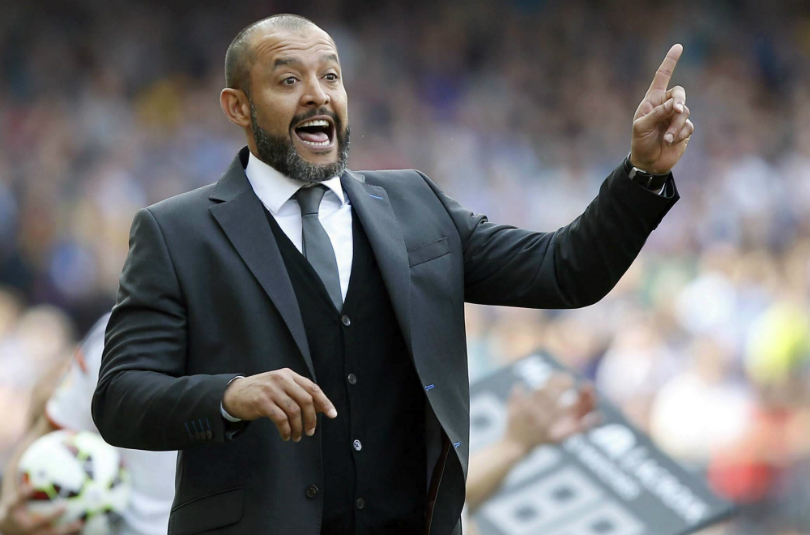
Mendes did not take a penny from the Nuno deal, and the pair became friends for life. The story has a typically Mendes-tinted happy ending: Nuno ended up with his dream club at Porto (he was there from 2002-04 and 2007-2010) and Mendes subsequently got him his first job as a coach, at Rio Ave. After two successful seasons there, he moved in summer 2014 to La Liga as coach of Valencia.
“If I’m here it’s thanks to Jorge Mendes,” said Nuno at his pre-season press conference, “and what’s the problem with that? He’s my agent and he does his job.” Mendes also found Valencia a new owner, Peter Lim, who in January 2015 bought a Mendes client, Enzo Perez, from Benfica for €25m.
A growing concern
The Nuno deal had Mendes up and running. His next target was to conquer his homeland of Portugal. He did this in the late 1990s, taking advantage of a fall-out between Porto president Pinto da Costa and the leading Portuguese agent of that period, Jose Veiga. A Mendes client, Costinha, joined Porto from Monaco, and others – Jorge Andrade and then Deco – followed. Meanwhile, Veiga looked after players like Luis Figo, Nuno Gomes and Fernando Couto.
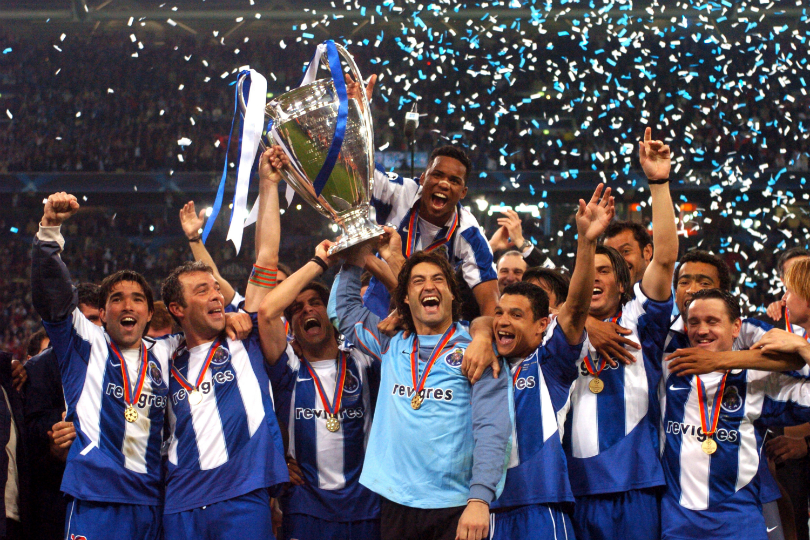
That all changed in the summer 2002, when the pair took the same flight from Milan to Lisbon. A report published in the Portuguese paper Record on October 15, 2002, explains what happened next: “Mendes approached Veiga to ask him about rumours that Veiga allegedly started... From there, they had a fight, grappling with each other on the floor, Mendes on top and Veiga grabbing his tie.” In the confusion, Mendes picked up Veiga’s phone that had fallen onto the floor. (It is unclear whether he gave it back.)
In summer 2002, Mendes did his first deal with a Premier League club, taking Hugo Viana to Newcastle for €12m thanks to a partnership with Paul Stretford’s company, Proactive Sports Management. And that September, Maria Dolores Aveiro, the mother of a 17-year-old Cristiano Ronaldo, ended her contract with Veiga and joined up with Mendes. In a matter of months, Ronaldo joined Manchester United.
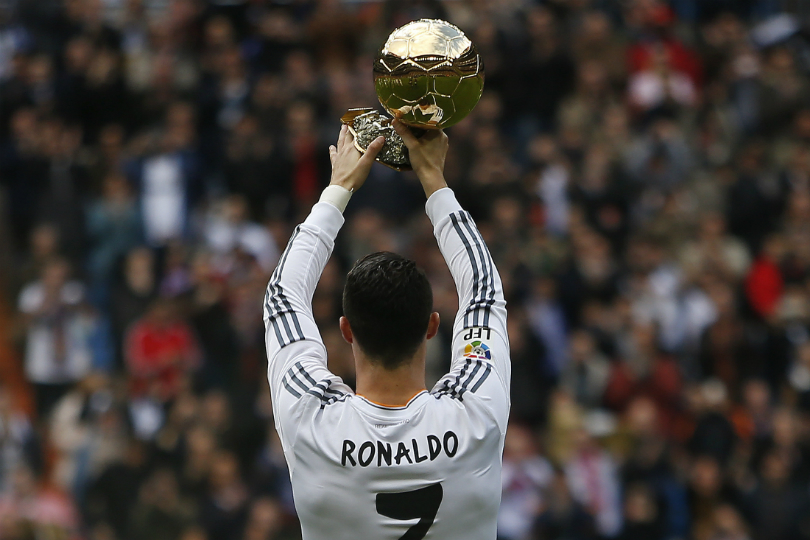
Another agent, Pini Zahavi, helped open the door to Chelsea and it was propitious that Chelsea’s new chief executive, Peter Kenyon, had worked with Mendes on the Ronaldo deal. That helped Mendes take Jose Mourinho and two Porto players, Ricardo Carvalho and Paulo Ferreira, to Stamford Bridge in 2004. Four years later, ex-Porto players Jose Bosingwa and Deco joined them.
The Mendes method
We were a small club. I always told Jorge that my ambition was for this club to be a champion club, and thanks to Jorge that’s what happened
The Mendes method is clear. When he works with a club, it’s rarely to expedite the transfer of one player. It’s more than that. Often he represents the coach as well, or will supply the bulk of the team.
That was what Braga wanted when they partnered with him in 2006. “We were a small club who wanted to make Braga known in Portugal and Europe,” president Antonio Salvador said. Within five years, Braga had finished second in the league, reached the Europa League final and in 2013 won the Portuguese League Cup. “I always told Jorge that my ambition was for this club to be a champion club, and thanks to Jorge that’s what happened.”
It doesn’t always go so well. Besiktas signed six Mendes players – Ricardo Quaresma, Simao Sabrosa, Hugo Almeida, Julio Alves, Sidnei and Bebe – in the space of 12 months in 2010-11. The latter three played only 20 games between them. When Besiktas president Yildirim Demiroren left to become Turkish FA president, his successor Fikret Orman was left with high earners with little sell-on value.
Manchester United, Barcelona, Real Madrid, Atletico Madrid, Monaco, Deportivo La Coruna, Besiktas, Braga and Dynamo Moscow have all used the ‘Mendes multi-player option’ to boost their squads
The likes of Dynamo Moscow (who signed Portugal internationals Maniche, Nuno, Danny and Costinha in the mid-2000s), Atletico Madrid, Real Madrid, Barcelona, Deportivo La Coruna, Monaco and Manchester United have all used the ‘Mendes multi-player option’ to boost their squads.
There have been complaints about Mendes’ methods. Fellow super-agent Mino Raiola moaned that Mendes is too profit-oriented and doesn’t think about what’s best for his client. Formation – formerly Proactive Sports Management – fell out with Mendes over Ronaldo’s United move, while three Portuguese agents have cried foul. Ana Almeida filed a case claiming Mendes had poached Nani from her. Jorge Baidek alleged the same about Mourinho. Goncalo Reis said Bebe was his player until days before his shock move to England.
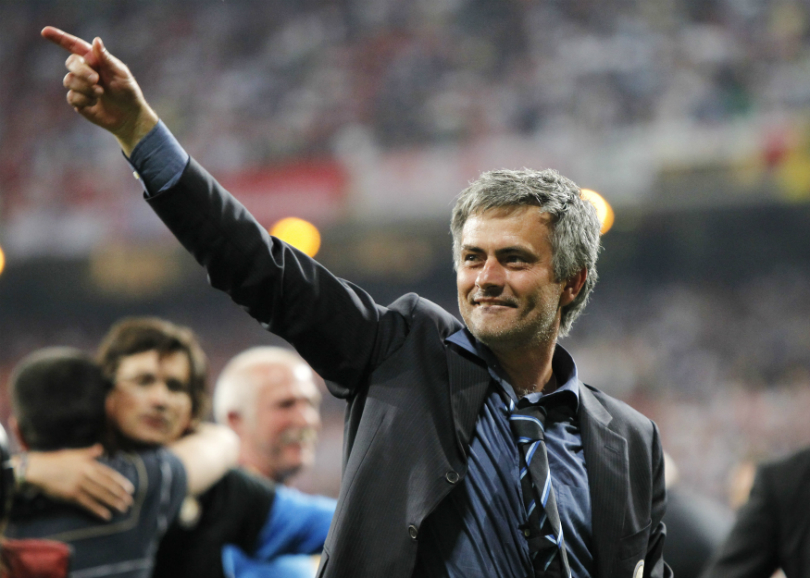
And at Real Madrid, there was real antagonism that he was allowed different privileges while Mourinho was coach. While other agents needed to ask for a visitor’s pass at the training ground three days before turning up, Mendes would spend most of his days in Mourinho’s office.
Spanish journalist Diego Torres, author of The Special One: The Dark Side of Jose Mourinho, alleged that Mourinho and Mendes thought about buying Hugo Almeida, a Gestifute client. That transfer apparently never went further than the discussion phase.
Everybody's friend
His lawyer, Carlos Osorio de Castro, is adamant that Mendes always acts within the law: “He’s obsessed with being lawful.” Others simply say he is honest, transparent, and brilliant with relationships. “He defends the people he represents but also tries to help, as much as he can, the clubs where they work,” said Perez. “Not only Real Madrid – I know he has good relations with many clubs in Spain, and that’s why he’s number one in this area.”
It helps that he often brings owners to the club in the first place, as he did with Peter Lim at Valencia and Dmitry Rybolovlev at Monaco
That, too, is rare: Mendes works closely with Real Madrid, Barcelona and Atletico Madrid; Manchester United and Chelsea; Fenerbahce and Galatasaray. Not to mention the work he does with Porto and Benfica, helping them get top dollar for their players.
Both presidents Pinto da Costa (Porto) and Luis Felipe Vieira (Benfica) appeared on The Super Agent to thank Mendes for helping their export column: “Several hundred million Euros have come in, but the country doesn’t acknowledge it.” Mendes claims to have been responsible for 68% of all player transactions at Portugal’s big three clubs in the 2000s.
It helps him further that he often brings owners to the club in the first place, as he did with Lim at Valencia and Dmitry Rybolovlev at Monaco. Once that happens, the Mendes multi-player arrangement often follows.
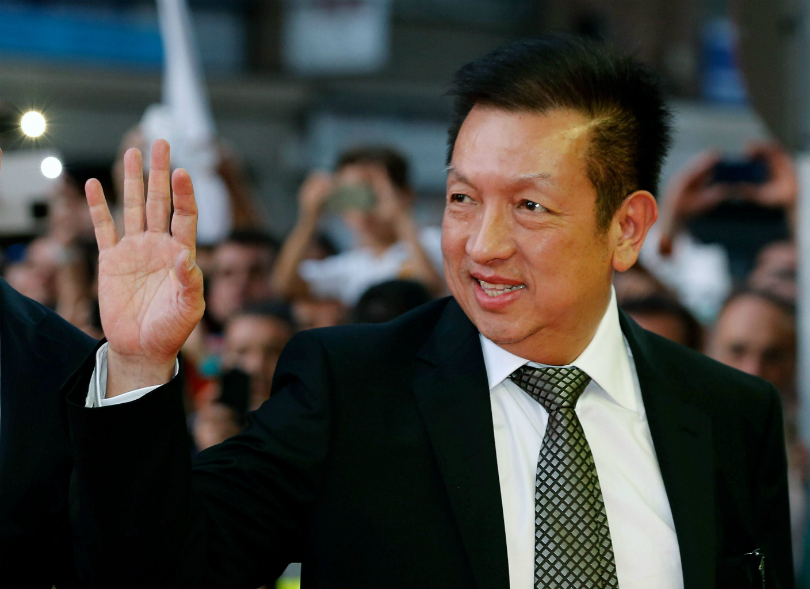
But there is another revenue stream in the Mendes armoury, and this one is right on the edge of what De Castro calls ‘lawful’. It relates to an investigation by The Guardian, who wrote in September 2014 that Mendes has had an apparent conflict of interest by acting as agent to players whose economic rights have been bought by five Jersey-based funds that he also advises. This appears to be in breach of FIFA regulation 19.8, which states: “Players’ agents shall avoid all conflicts of interest in the course of their activity.”
A key partner in what effectively seems a consultancy in third-party ownership of players’ economic rights – which FIFA has announced it plans to ban in the future – is Kenyon, his former ally at United and Chelsea. A 2012 prospectus claimed that Gestifute and Opto (Kenyon’s company) have identified talents in which funds can buy stakes before they are sold on at a profit for the investors. Partner clubs, according to the prospectus, include Porto, Benfica, Sporting Braga and Atletico Madrid.
Mendes or God?
A man who worked for Mendes came to see me. I don’t know why I was allowed to play, but I played. When the game was over, this person offered me a contract to play for Sporting Braga. That’s how I came to Europe
The journey of Diego Costa from a village in Brazil to Stamford Bridge gives another insight into the Mendes modus operandi – and his influence. Costa was in the middle of a lengthy ban for violent conduct while playing for Barcelona Esportivo Capela. “One day, a man who worked for Jorge Mendes came to see me,” Costa told El Pais. “I don’t know why I was allowed to play that day. I don’t know if it was him [Mendes] or God, but I played.
"When the game was over, this person offered me a contract to play for Sporting Braga, and that’s how I came to Europe.” Six months later, Atletico Madrid bought 50 per cent of his economic rights for €1.5m. The investors who owned the other half must have been delighted when Atletico sold him to Chelsea last summer for €40m.
Was this what Monaco fans were getting at when they painted the road along the entrance to the club’s training ground with the words: ‘Mendes = mafia’? As De Castro said: “The more you look, the less you see.”
First Mendes conquered Portugal, then the world. He has the big clubs eating out of his hand and he controls the destinies of the world’s best players – and some of the clubs too.
“Jorge’s greatest virtues are that he is honest, sincere and professional,” Ronaldo told SIC in the course of their documentary. “Everything he has was well-earned. Nobody works as much as he does. If you look at the market, at the clubs he works with, the players he represents, the transfers he makes, he’s number one without a doubt.”
What next? He once asked himself the same question, and thought about being a club president. “It’s a possibility, but I can’t think about something that is impossible at the moment.”
It would seem a strange career choice: he exerts power at around eight clubs already, with none of the downsides and more – many more – of the upsides. And there's always another transfer window.
Footnote: The Other Super-Agents
Meet the best-connected ‘Mr 10%s’ in Italy, England and France
Mino Raiola
From one-time pizza maker to big-time deal broker, the generously proportioned Neapolitan is one of football’s most colourful agents, with a bulging client list which includes Zlatan Ibrahimovic, Mario Balotelli and Paul Pogba. An octolingual polyglot (ie he can speak eight languages), Raiola’s single-minded desire to get the best for his clients has often riled managers – Sir Alex Ferguson among them – who consider the 47-year-old something of a meddling influence.
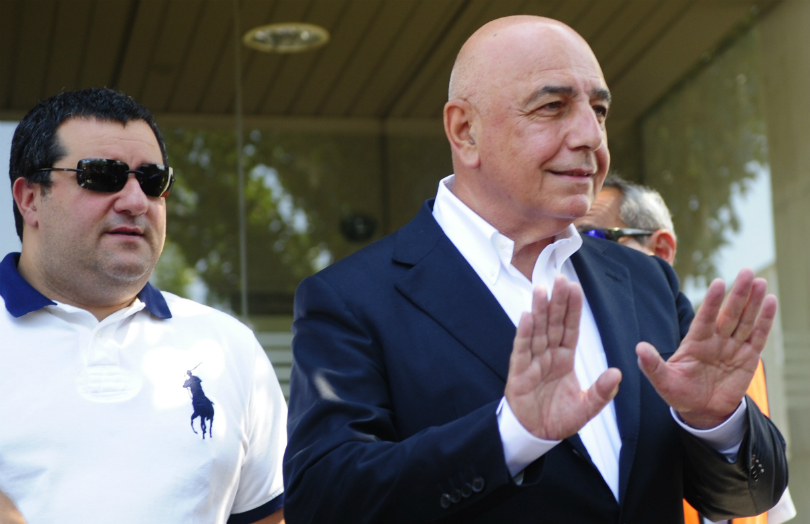
Jonathan Barnett
In short, the man who masterminded the most expensive transfer in football history. Gareth Bale’s agent can also count Ashley Cole, Joe Hart and Luke Shaw in his impressive stable. With two of those four changing clubs the other summer, August 2014 was a pretty good month. Barnett’s company, Stellar Group, has also represented former world heavyweight boxer Lennox Lewis and cricket royalty Brian Lara. He also looks like a Bond villain, which is nice.
Jean-Pierre Bernes
A politics graduate, Bernes worked for Marseille for years, spending time in prison as part of the club’s match-fixing scandal in 1995 and writing a book about the club called Je Dis Tout [I’ll Say Everything]. Since his release, the 57-year-old has risen to be the undisputed kingpin of the French transfer market, representing Franck Ribery, Samir Nasri and Antoine Griezmann among others, and the country’s two highest-profile managers: Laurent Blanc and Didier Deschamps.
This feature first appeared in the March 2015 issue of FourFourTwo magazine. Subscribe!
